NEWS
Message from International Christian University (ICU) , No12
Update: March 20, 2023
This E-Newsletter is mainly for teachers and counselors involved in secondary education, but is open to individuals who wish to subscribe to it. Please fill in the form below and click on the "Subscribe to this E-Newsletter" button.
Subscribe to this E-Newsletter
Message from ICU , No.12(March 20, 2023)
International Baccalaureate(IB)Educators Nurtured Through Liberal Arts Education
Atsuko Handa, Director, Center for Global Education
What is the International Baccalaureate (IB)?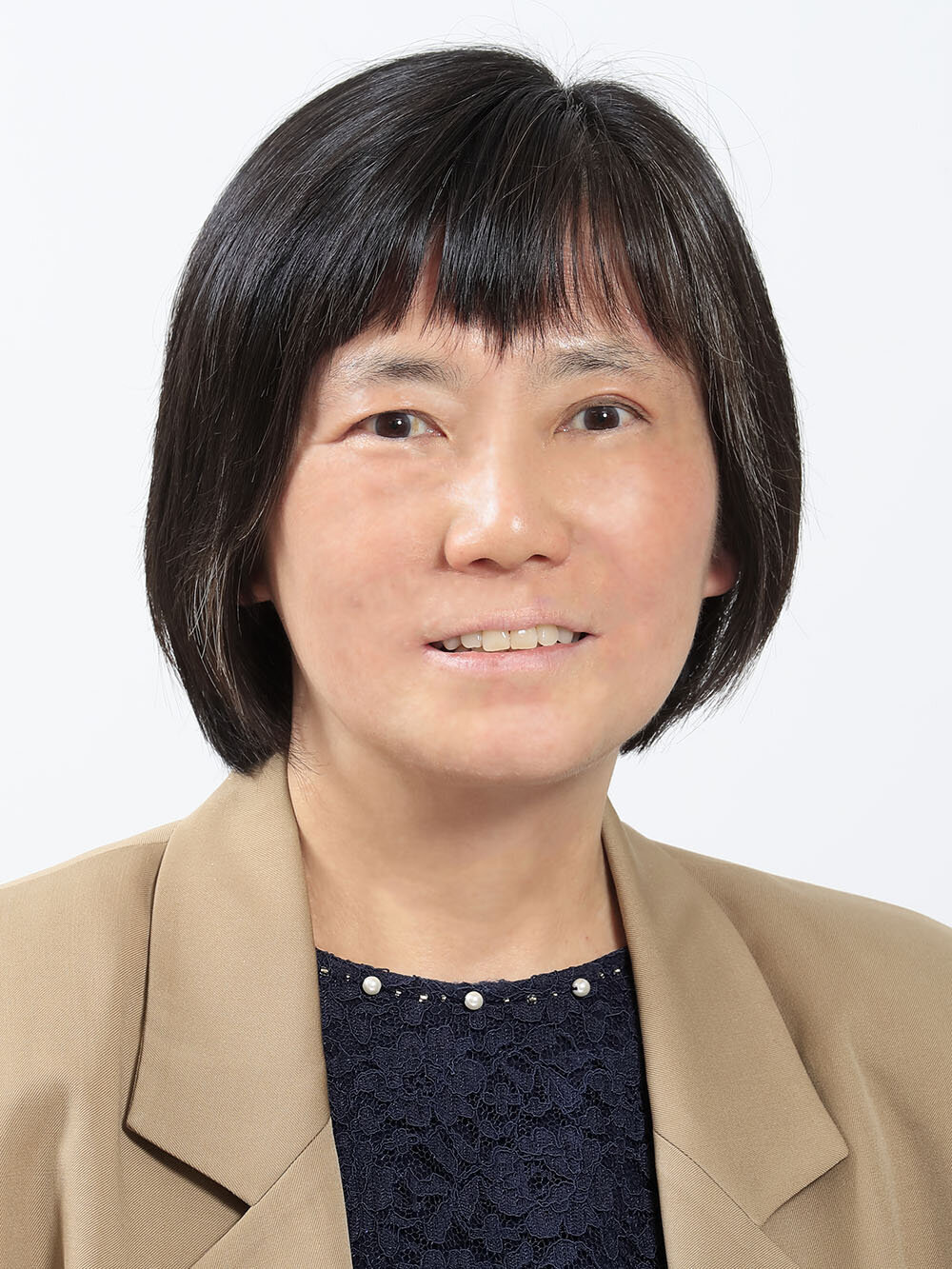 The IB refers to educational programs the International Baccalaureate Organization (IBO) headquartered in Geneva, Switzerland, started offering in 1968. ICU, with doors wide open to students completing secondary education in any country or region since it was founded, has been accepting those with IB credentials from an early stage. The liberal arts education we offer and IB programs are implemented under similar philosophies: those with an IB background have flourished in the proactive learning environment at ICU.
The IB refers to educational programs the International Baccalaureate Organization (IBO) headquartered in Geneva, Switzerland, started offering in 1968. ICU, with doors wide open to students completing secondary education in any country or region since it was founded, has been accepting those with IB credentials from an early stage. The liberal arts education we offer and IB programs are implemented under similar philosophies: those with an IB background have flourished in the proactive learning environment at ICU.
IB educational programs consist of: Primary Years Programme (PYP, for students aged 3~12), Middle Years Programme (MYP, for students aged 11~16), Diploma Programme (DP, for students aged 16~19), and Career-Related Programme (CP, for students aged 16~19). The Teacher Certification Program at ICU concerns MYP and DP. When students complete the DP and pass the final examination at an IBO-certified IB World School, they receive an IB Diploma, an internationally recognized qualification to enter university.
As of January 2023, more than 5600 IB World Schools exist in approximately 160 countries and regions. In Japan, 191 schools are certified or in the process of being certified as IB World Schools. Seventy-two among them are schools certified under Article 1 of the School Education Act, referred to as an Article 1 School (Ministry of Education, Culture, Sports, Science and Technology IB Education Promotion Consortium). You may think IB World Schools conduct all their classes in English, but as of 2016, some of the DP subjects could be taught in Japanese (called DP in Japanese). At present, 33 schools among the 72 have been certified to provide DP instruction in Japanese.
IB Educator Training Program Established at ICU
ICU started offering IB Educator Certificate courses as of April 2019, in addition to the teacher training program for the Japanese system. Considering the Japanese government's intention to increase the number of IB World Schools, we expect a shortage of teachers trained to teach IB programs. Students acquire an IB Educator Certificate in either the Certificate in Teaching and Learning (CTL) or the Advanced Certificate in Teaching and Learning Research (ACTLR) upon completing 12 credits in 6 subjects and 3-week teaching practice. These certificates are formally awarded by the IBO, but courses necessary for their application can be taken at ICU.
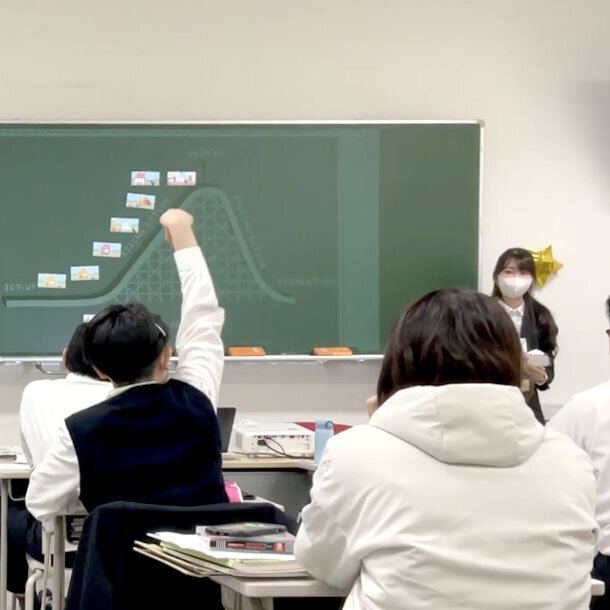 To acquire ACTLR, applicants need more than three years teaching experience at an IB World School. Students aspiring for a CTL must possess teacher certification in Japan or take the regular teacher certification courses simultaneously. They can take IB Educator Certification courses, regardless of the type of teacher certification they possess or the subject they are certified to teach. This can be said to be a strength of the single college of liberal arts like ICU, as for example, a biology major can be certified to teach English or mathematics.
To acquire ACTLR, applicants need more than three years teaching experience at an IB World School. Students aspiring for a CTL must possess teacher certification in Japan or take the regular teacher certification courses simultaneously. They can take IB Educator Certification courses, regardless of the type of teacher certification they possess or the subject they are certified to teach. This can be said to be a strength of the single college of liberal arts like ICU, as for example, a biology major can be certified to teach English or mathematics.
Affinity with Liberal Arts Education
ICU educates its students to become responsible global citizens living in the 21st century. Factors indispensable to achieving this goal include cultivating superb communication ability in their mother tongue and a foreign language, critical thinking and decision-making skills, broad knowledge across diverse fields, creativity, and the spirit of service. IB's mission has a lot in common. "IB develops inquiring, knowledgeable and caring young people who help to create a better and more peaceful world through intercultural understanding and respect." Affinity with our educational philosophy is the main reason we started offering the IB Educator Certificate Program at ICU.
ICU has for long been accepting students with IB Diplomas. A good number of students completing IB programs enter ICU every year, and they often tell us, "the foundation for learning at ICU was nurtured through the IB programs." Not only do we share educational philosophies, but the learning at ICU can be said to be an extension of the IB experience.
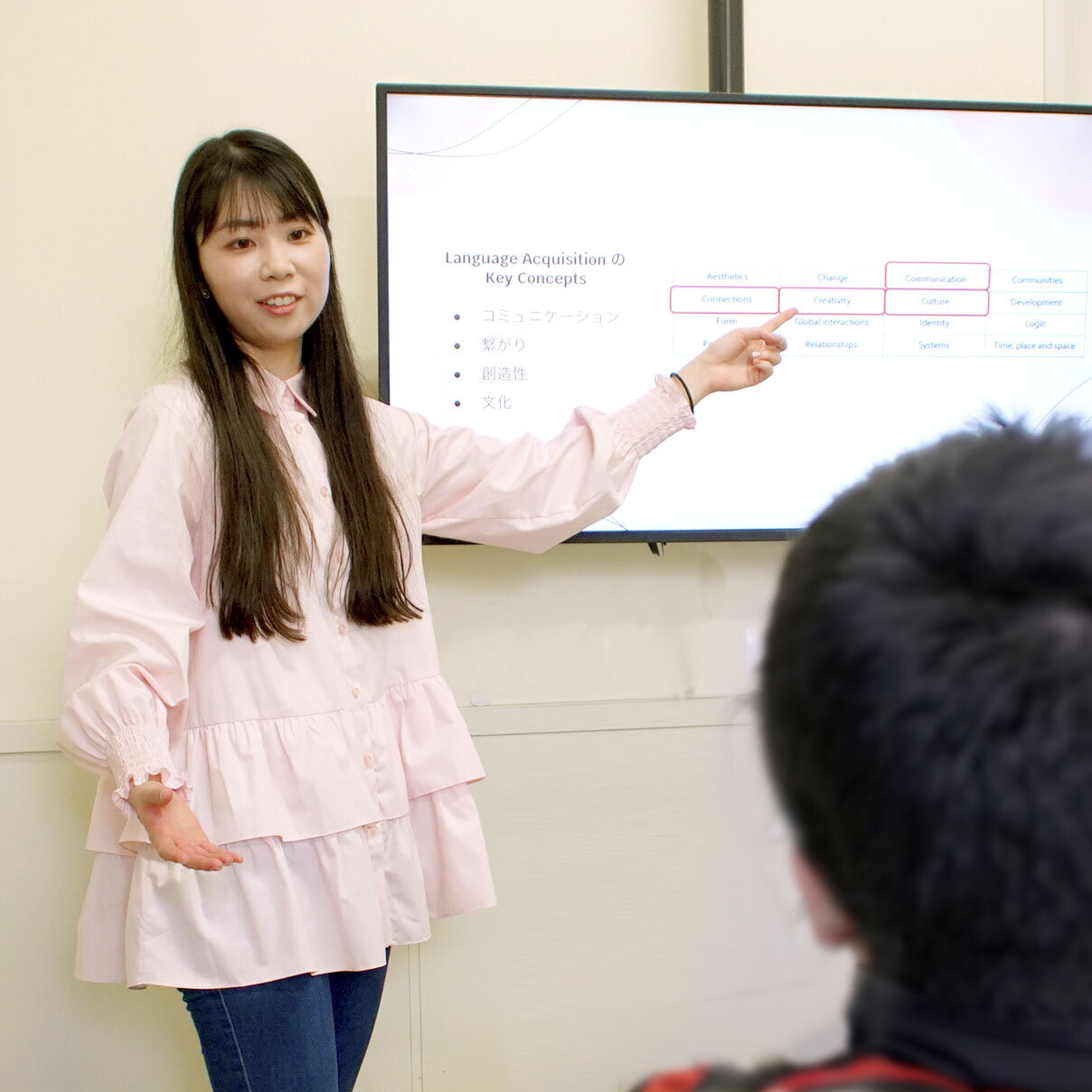
In IB education, teachers are obliged to focus on aspects such as inquiry-based learning, teaching developed on a local and global context, emphasis on effective teamwork and collaborative group projects. This is similar to the style of instruction at ICU. Our motto is education in small classes, which allows for interaction among students or dialogue with faculty in class. Starting from the ELA (English for Liberal Arts Program) and the JLP (Japanese Language Programs) in the freshman year, continuing on to General Education and specialized courses, emphasis is on inquiry-based learning and group work. Faculty also lecture during class, but that serves as an overture in prodding students to think. They are frequently asked what their opinions are. There is no right or wrong in the discussions. As the interaction intensifies, so will participants' intellectual satisfaction and sense of accomplishment. This is something that cannot be achieved when sitting in a large classroom with just the professor lecturing.
Comeshi provides clues for improvement
IB education emphasizes inquiry, but that does not complete the learning process. Action and reflection follow to form a cycle, in a continuous undertaking leading to the next inquiry. Students engage in inquiry-based learning, take action to find solutions for problems and reflect on the results leading to further inquiry. This cycle amounts to what we call "liberal arts in action" at ICU. We do not want our students to be passive; we want them to engage in proactive learning. The comment sheets (comeshi, in ICU parlance) we ask students to fill out after every class, offer an opportunity for reflection. They help faculty reflect on their instruction in discerning how far students absorbed the material discussed in class. This becomes valuable information when preparing for the next class, allowing faculty to improve on their teaching skills.
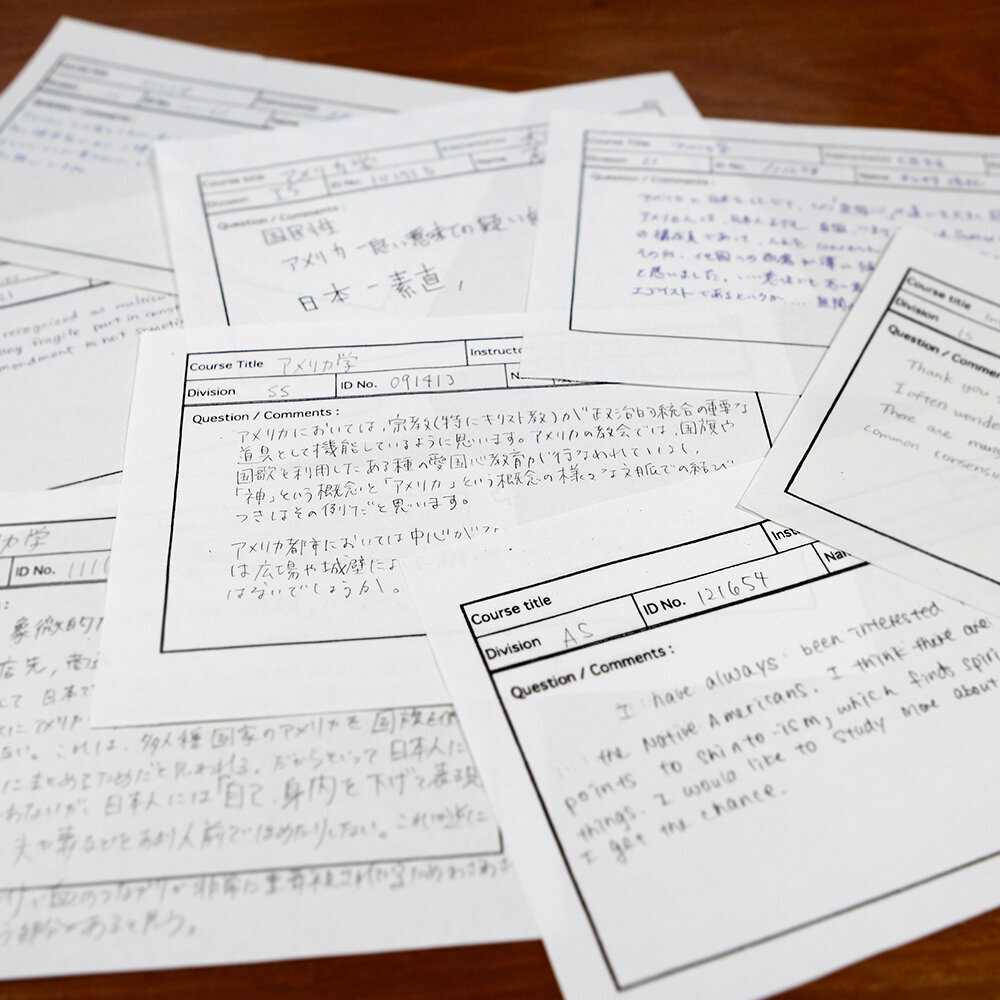
These skills are indispensable in life after graduation. Learning is a lifelong journey, formal education at university serving as one of the facets of the experience. IB education also touts a commitment to lifelong learning, sharing this ideal with liberal arts education in cultivating students who continue to develop their capability.
Paths after Completing the IB Educator Certification Program and reinvigorating society
Among the March 2022 graduating class, 12 students completed the IB Educator Certification Program. Among them, 8 now have jobs as teachers, with one teaching at an IB World School. We have yet to grasp the accurate number of those completing the IB Educator Certification Program in AY 2022, but two have already secured teaching positions at IB World Schools, with three others to be teaching at non-IB schools. Some of them were held in high regard during teaching practice sessions at secondary schools, where they consequently secured teaching positions. At ICU, students can choose to participate in teaching practice sessions at international schools, which is proof of their superb English communication ability.
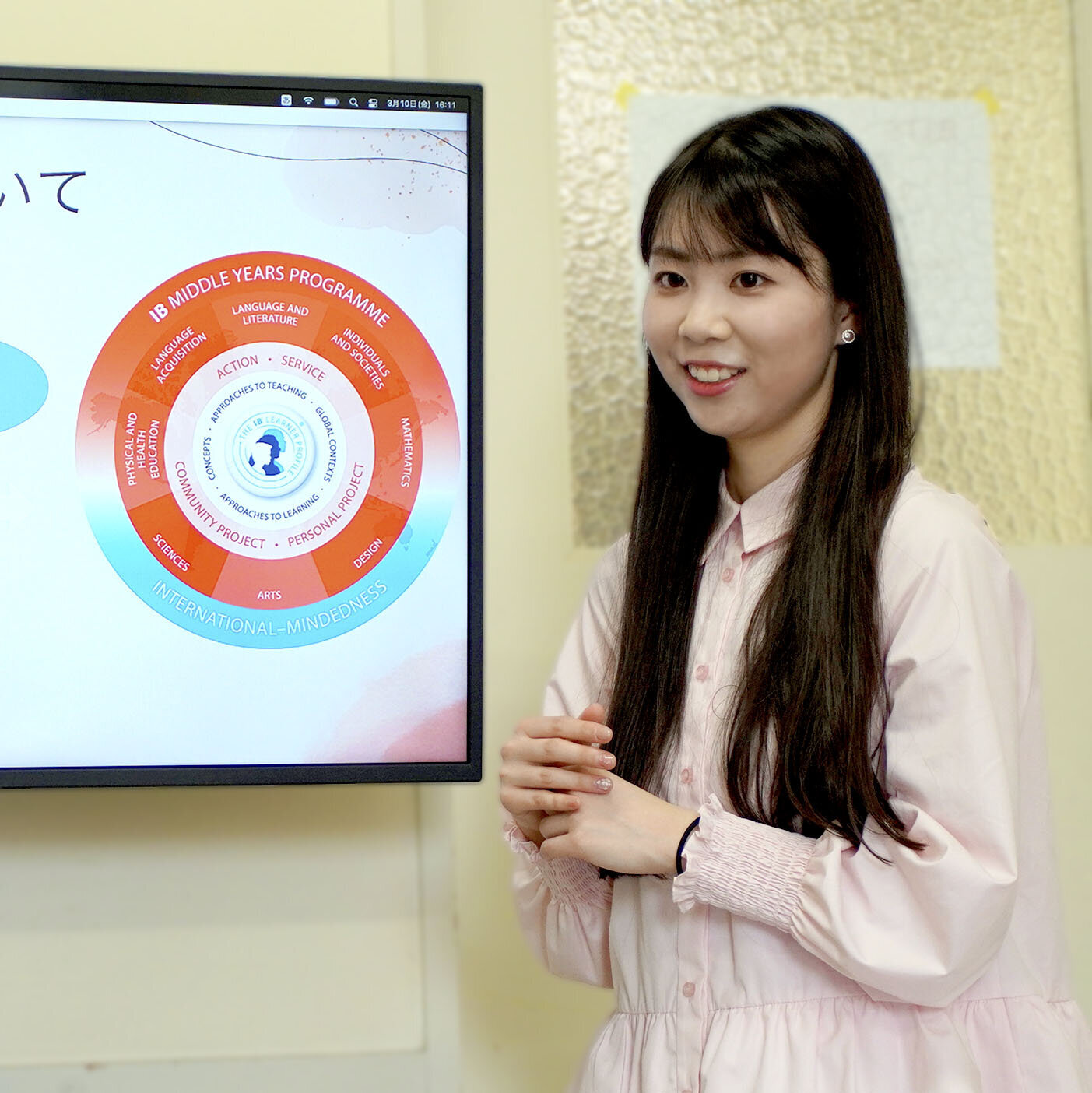
By completing the IB Educator Certificate Program, students acquire the IB Educator Certificate. The learning in the IB Educator Certification Program founded on liberal arts education can be utilized to their advantage in diverse educational spheres and also by those who choose a profession other than in teaching.
ICU is the only university in Japan that offers an IB Educator Certification Program founded on liberal arts. It is our hope that our students who experience learning founded on bilingualism in English and Japanese, in analyzing and observing things from multiple angles with critical thinking skills, will become leaders in the educational sphere after graduation to reinvigorate society.
For inquiries about the IB Educator Certificate Program contact:
ICU Graduate School Office Group
Email: ibec@icu.ac.jp / https://ibo.org/
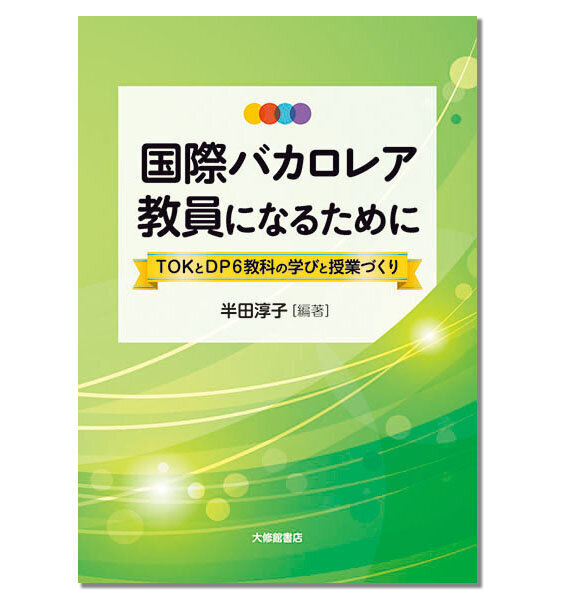
Atsuko Handa, Director, Center for Global Education
Handa received her doctorate in Japanese studies from Monash University, Australia in 2004. She specializes in Japanese/Kokugo language education and modern Japanese literature. She started teaching at ICU in 2005 and chairs the IB Teacher Training Program Committee from 2021. She was appointed Director of the Center for Global Education in April 2023. Her edited publications include Kokugo Kyoshi no Tame no Kokusai Bakarorea Nyumon: Jugyo Zukuri no Shiten to Jissen Hokoku (Introduction to the International Baccalaureate for Japanese Language Teachers: Perspectives and Practical Reports on Class Development, Taishukan Shoten), and Kokusai Bakarorea Kyoin ni Naru Tame ni: TOK to DP Roku Kyoka no Manabi to Jugyo Jissen (To Be an International Baccalaureate Teacher: Learning and Class Development of TOK and DP6 Subjects, Taishukan Shoten).
